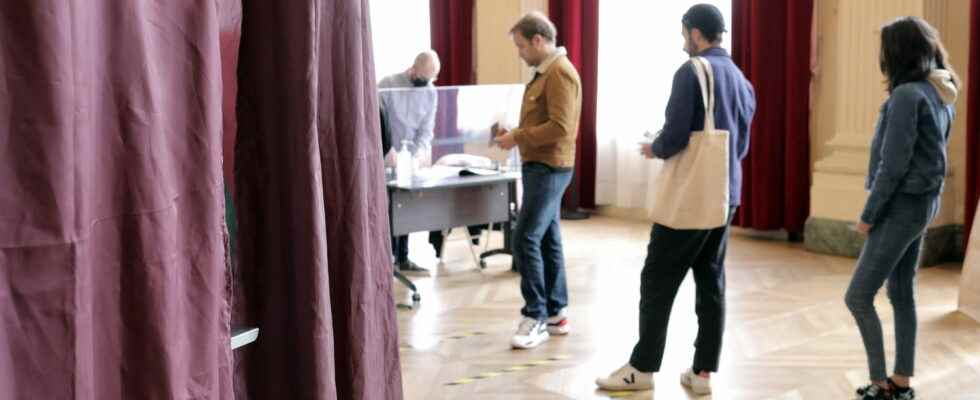SURVEY. As the first round of the 2022 legislative elections approaches, the French seem to be following an election from afar, the impact of which remains variously appreciated, especially as local candidates remain unknown.
Four days before the first round of the legislative elections, this Sunday, June 12, what is the level of interest of the French for this election? Since the re-election of Emmanuel Macron, a sluggish political period has opened up, just revitalized with the announcement of the new government in mid-May. A form of general anesthesia which serves as a context for these 577 local elections reduced to a solely national issue. Exit the territory, focus is on the National Assembly and its future composition. To Jean-Luc Mélenchon the great declarations in the wake of a union of the left that he set up, to La République en Marche the difficult mission of putting out the fires, controversies and other hiccups (Damien Abad, Stade de France, remarks by Elisabeth Borne) who have come to upset the start of the new five-year term, on the right and on the far right the crumbs of a campaign which has only the name.
What is the interest of the French for the legislative elections?
As revealed by the YouGov poll for Linternaute.com, carried out from June 3 to 6, 2022 among 1,005 people of voting age, 37% of voters say they are “not interested” in the upcoming ballot, organized on Sundays June 12 and 19. . And if 61% claim to be “interested” in the legislative elections, only 25% are “completely” so. In detail, it is the 35-54 year olds who are the least interested (42%), ahead of the 18-34 year olds (39%) and the 55 and over (32%). Men seem to pay a little more attention to the ballot (64% interested against 58% for women). In terms of partisan proximity, it is the voters of Valérie Pécresse (89%), Yannick Jadot (80%) and Emmanuel Macron (76%) who report increased interest in the election, when those of Marine Le Pen are only 56% to declare themselves interested.
One of the reasons for this fluctuating interest? 46% of respondents believe that this election will have no concrete impact on their future (purchasing power, retirement, immigration, protection and social security, etc.). A very divisive observation since 43% believe, on the contrary, that the result will not be without consequences on their daily life, without however declaring whether they see it as positive or negative.
Are the candidates for the legislative elections known to the French?
While these legislative elections, which should make it possible to elect the 577 representatives of the constituencies of France, seem to have been nationalized and are turning into the battle between LREM and NUPES, what about knowledge of the candidates at the local level? Do the French vote blindly for a label or are they interested in the profiles of the various contenders for deputy? Still according to our survey, 63% of people questioned say they know at least one candidate running in their constituency. 37% therefore say they have no idea who aspires to become the representative of their constituency. Proportions which are globally homogeneous in the different presidential electorates.
Are the French in favor of a new voting system for the legislative elections?
Moreover, legislative elections are always an opportunity to talk about the voting system and bring back the eternal debate on the introduction of proportional representation, like the voting system for municipal elections. If the political opponents have a field day on the subject and demand the integration of proportional representation, what do the French think? According to our YouGov poll, opinions are divided. 35% argue for a full proportional voting system, while 19% say they are in favor of a mixed voting system and 12% say they are in favor of a single-member voting system. 34% have no opinion on the question.
Methodology: The survey was carried out among 1005 people representative of the French national population aged 18 and over. The survey was carried out online, on the YouGov France proprietary panel, from June 3 to 6, 2022.
